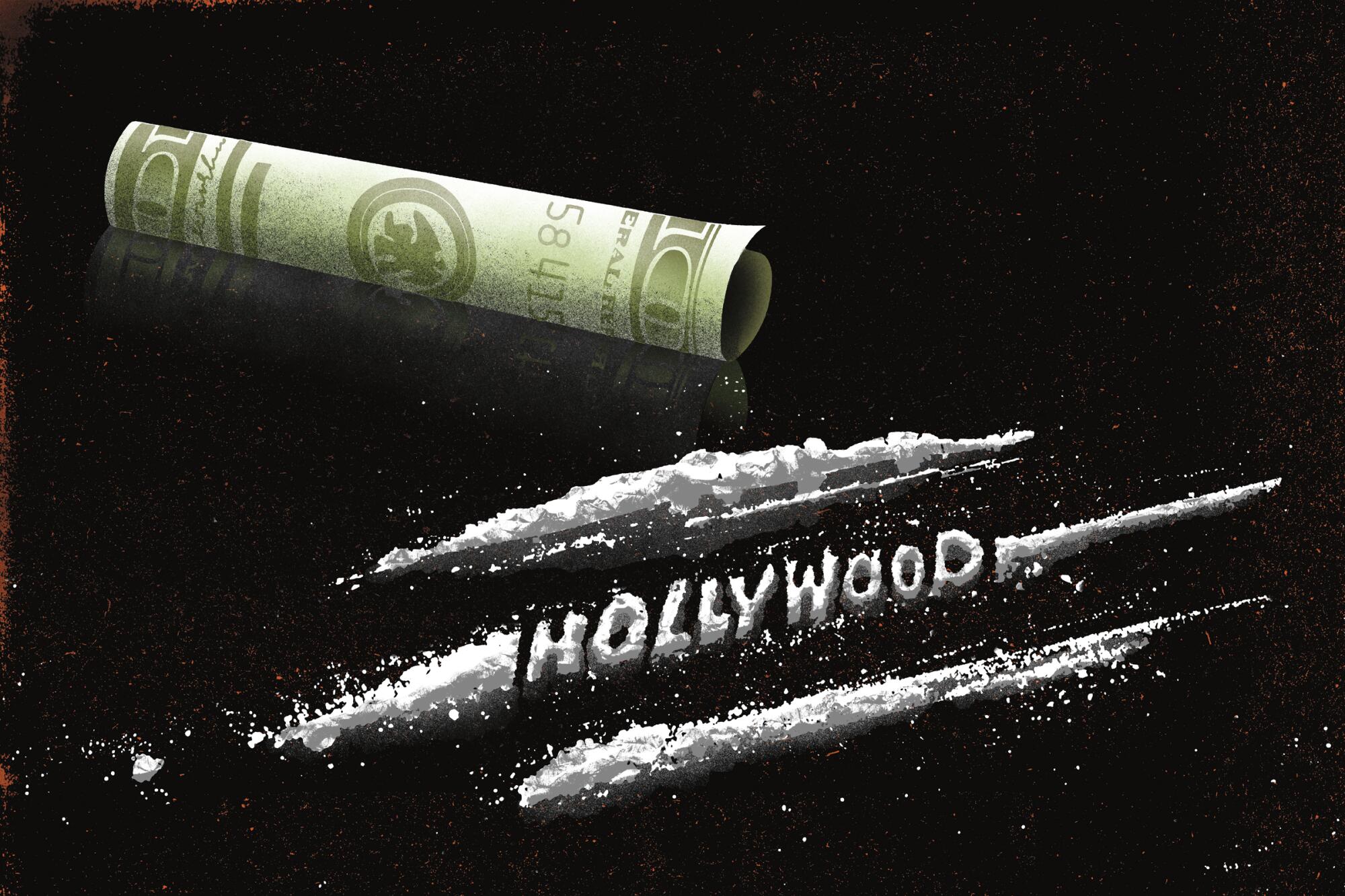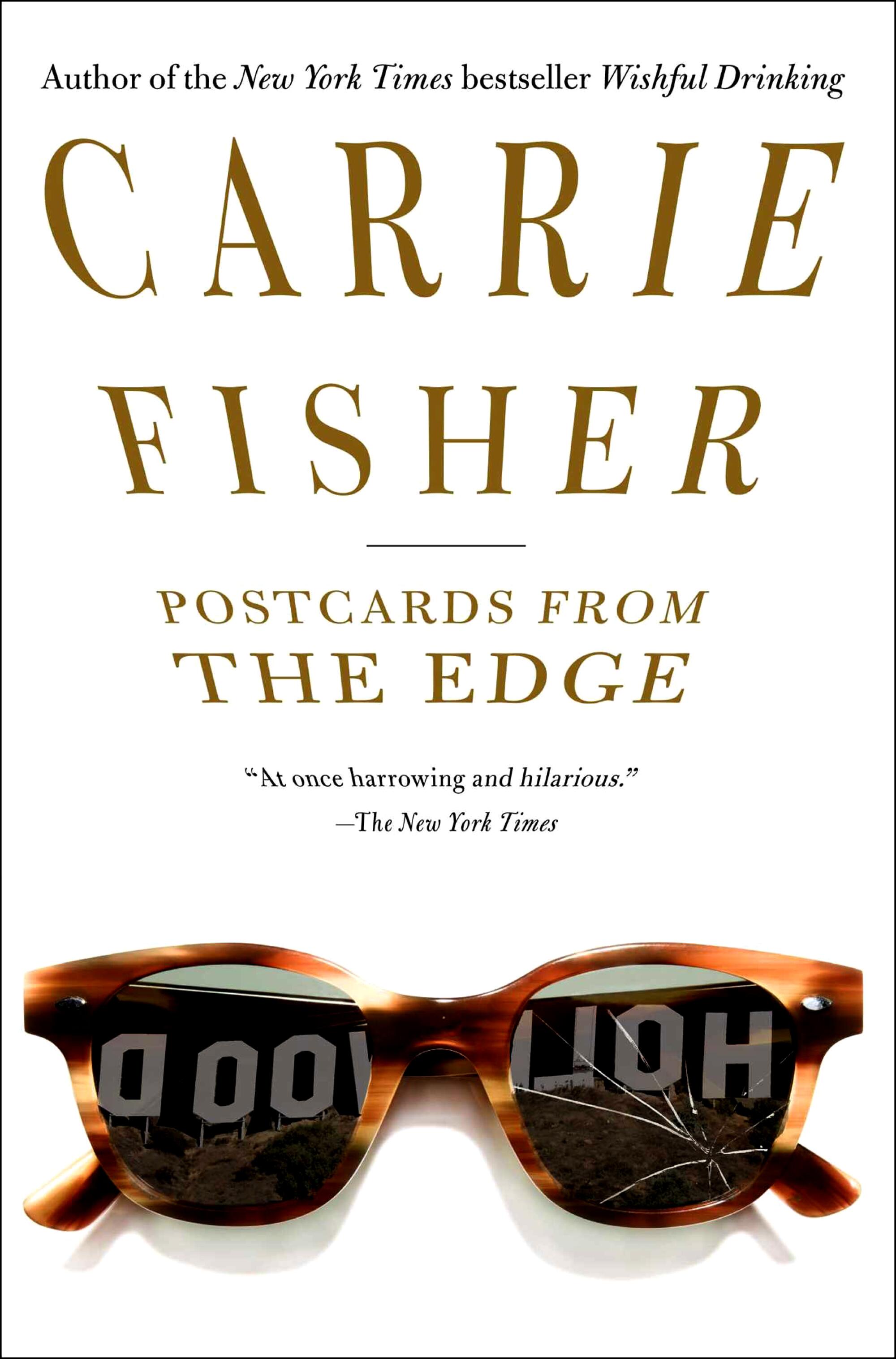
- Share via
“Maybe I shouldn’t have given the guy who pumped my stomach my phone number, but who cares?” There is no more quotable novel about Hollywood than Carrie Fisher’s roman à clef, “Postcards From the Edge.” Fisher’s sentences bristle with caustic, self-effacing humor. Outside of her forays into that galaxy far, far away, that brand of sharp deadpan comedy is perhaps what the former Princess Leia would become best known for. And in her debut novel, the actress-turned-writer makes great use of her enviable way with words.
The Ultimate Hollywood Bookshelf
“Postcards From the Edge” ranks No. 15 on our list of the best Hollywood books of all time.
Whether sketching a scene with brisk efficiency or offering up aphorisms whose insights are all the more piercing for the wit that encases them (“I told him about the Oedipal thing, about my father leaving when I was very young so I knew how to pine for men, but not how to love them”), the “Star Wars” star’s 1987 bestseller remains a raucous, rollicking affair.
It’s true, though, that the novel’s merits may be somewhat eclipsed by the movie adaptation that followed. Directed by Mike Nichols, it starred Meryl Streep and Shirley MacLaine and earned Fisher a BAFTA nomination for best adapted screenplay. Nevertheless, this slice of L.A. life deserves to be celebrated for how it brilliantly works on the page.

Fisher’s protagonist is Suzanne Vale, a modestly successful actress whose journal missives from rehab anchor the first section of the novel. Suzanne’s time surrounded by fellow addicts fumbling their way into sobriety is characterized by a candid lucidity about drug abuse and recovery that is as fresh and revealing today as it was in the late 1980s. “It was like I was a car, and a maniac had gotten behind the wheel. I was driven, and I didn’t know who was driving,” Suzanne explains when describing the moments leading up to the overdose that landed her in the hospital. Decades’ worth of therapy no doubt had helped actress and author alike mine such personal epiphanies for endless cocktail hour-ready anecdotes.
Lest that suggest “Postcards From the Edge” relies on navel-gazing storytelling that borrowed freely from the star’s own very public struggles with addiction, Fisher proves early on to be a master ventriloquist. She deftly juxtaposes Suzanne’s self-deprecating journal entries with the gonzo stream of consciousness ramblings of Alex, a cocaine addict. Convinced he’s above it all and committed to staying only long enough to gather details as fodder for a TV film treatment on rehab (“I wish I could do speed, though. I always wrote better on speed”), the struggling writer serves as a foil to Suzanne. That’s crystal clear once he leaves the center and finds himself high, paranoid and spilling half an ounce of blow in the bathtub of a hotel room in the Valley.
As soon as Suzanne finishes her treatment, Fisher opts to switch voices once more. Meetings with a would-be suitor (“My route to intimacy is routine,” she quips on their first date) and her shrink (“Remember our last session when you said that maybe I shouldn’t date for a while?”) are driven by furiously funny dialogue alone. Those tour de force scenes are a reminder of Fisher’s canny ear for the specific cadence of Angelenos fully immersed in the twinned make-believe worlds of moviemaking and self-delusion.
By the time Suzanne gears up for a return to acting (in a laughable project shooting out in the desert), Fisher shifts to a third-person narrator who can more incisively dissect this young woman’s wayward attempts at getting her career and dating life back together: “Suzanne was in the business of seeming — of entertaining people with her ways of seeming real,” we’re told. “Portraying reality had become her way of experiencing it.”
Thankfully, Fisher’s novel has a structure that careens us back from the edge and toward a place where Suzanne learns how to experience life. We’re taken from the ever-doubting inner thoughts of an addict in rehab, through her slurry of words as she gets out, and into her increasingly coherent actions as observed from the outside. It’s a reminder that Fisher’s writerly gifts extended far beyond her ability to pen a killer sentence.
Yes, “Postcards From the Edge” is awash in delicious one-liners, the kind that make you angry with envy for how effortlessly they skewer all things L.A. But the beauty of this novel comes from the grace with which Fisher approaches her fictional alter ego. In her hands Suzanne’s slow ascent back into a world that has some semblance of normalcy (for a recovering Hollywood actress, at least) is punctured with a sense of humor that stings precisely because it’s so surgically self-directed. So nakedly self-revealing. And, as a result, so wounding and healing in equal measure.
Betancourt is a Los Angeles-based queer Colombian writer and film critic. His latest work, “The Male Gazed: What Hunks, Heartthrobs and Pop Culture Taught Me About (Desiring) Men,” was named one of the best books of 2023 by Time magazine and NPR.
More to Read
Sign up for our Book Club newsletter
Get the latest news, events and more from the Los Angeles Times Book Club, and help us get L.A. reading and talking.
You may occasionally receive promotional content from the Los Angeles Times.








